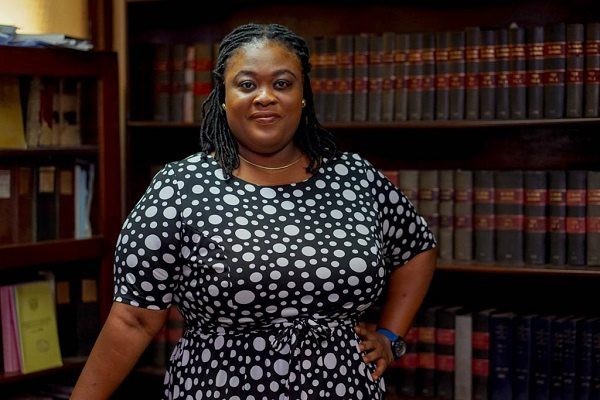The Deputy Auditor-General and Minister of Justice, Diana Asonaba Dapaah has attributed the cause of judgment debts in the country to poor implementation processes and failure to abide by A-G’s advice.
In her view, the opinion of the principal legal advisor to the state before contracts are signed is either ignored or sidestepped by government agencies.
“The A-G’s office is sometimes not involved in the negotiations and discussions leading to the execution of some agreements. In some instances, I am afraid to say, the opinion of the office is not sought prior to the execution of agreements, irrespective of the reservations raised by the office,” Ms. Dapaah added.
Speaking at a roundtable on Friday, Ms. Dapaah observed that issues that took the state to a court or arbitral tribunal were the abrogation of contractual agreements or breaches.
This, she stressed is because some government agencies and ministries involve her outfit in contractual agreements, hence, defending the state becomes difficult.
“Defending the public purse in a situation where there is little or no information or support coming from the institution or ministry involved also poses a great challenge, and we at the office of the A-G do not exist as a state machinery with a magical wand to wipe away contractual breaches or judgement debt after they have occurred.
“We may have our very rare shortcomings in meeting some procedural obligations in international arbitration proceedings which, more often than not, boil down to the fact that we are handicapped,” Ms. Dapaah said.
The deputy A-G, therefore, said there was the need to deal with judgement debts devoid of politics in order to protect the public purse for accelerated development.
The Coordinator of the Third World Network-Africa, Dr. Yao Graham, and a senior partner at AB and David law firm, Mr David Ofosu-Dorte, said there was the need to build the expertise of government officials in the entire agreement preparation process.
Dr. Graham said government contracts should have clauses that limited damages in cases of default or breach of contract or litigation.
Mr. Ofosu-Dorte, on the other hand, advocated the inclusion of private sector consultants in the preparation of agreements.
On his part, the Executive Director of CDD-Ghana, Professor Henry Kwasi Prempeh, urged the government not to sign deals in crises period, since that could yield minimal benefits.
He further advised Parliament to actively get involved in processes leading to the signing of contracts and international agreements, adding: “Parliament comes in a little too late.”
Prof. Prempeh further proposed the drafting of Ghana’s own agreement model to guide officials in the signing of contracts.
Latest Stories
-
Legal Aid Commission employees threaten strike over poor working conditions
56 seconds -
Ghana ranked 7th globally as biggest beneficiary of World Bank funding
11 mins -
IMF board to disburse $360m to Ghana in December after third review
15 mins -
Former Bono Regional NPP organiser donates 13 motorbikes to 12 constituencies
21 mins -
Securities industry: Assets under management estimated at GH¢81.7bn in quarter 3, 2024
26 mins -
Gold Fields Ghana Foundation challenges graduates to maximise benefits of community apprenticeship programme
2 hours -
GBC accuses Deputy Information Minister Sylvester Tetteh of demolishing its bungalow illegally
2 hours -
Boost for education as government commissions 80 projects
2 hours -
NAPO commissions library to honour Atta-Mills’ memory
3 hours -
OmniBSIC Bank champions health and wellness with thriving community walk
3 hours -
Kora Wearables unveils Neo: The Ultimate Smartwatch for Ghana’s tech-savvy and health-conscious users
3 hours -
NDC supports Dampare’s ‘no guns at polling stations’ directive
3 hours -
Police officer interdicted after video of assault goes viral
3 hours -
KNUST’s Prof. Reginald Annan named first African recipient of World Cancer Research Fund
3 hours -
George Twum-Barimah-Adu pledges inclusive cabinet with Minority and Majority leaders
4 hours

